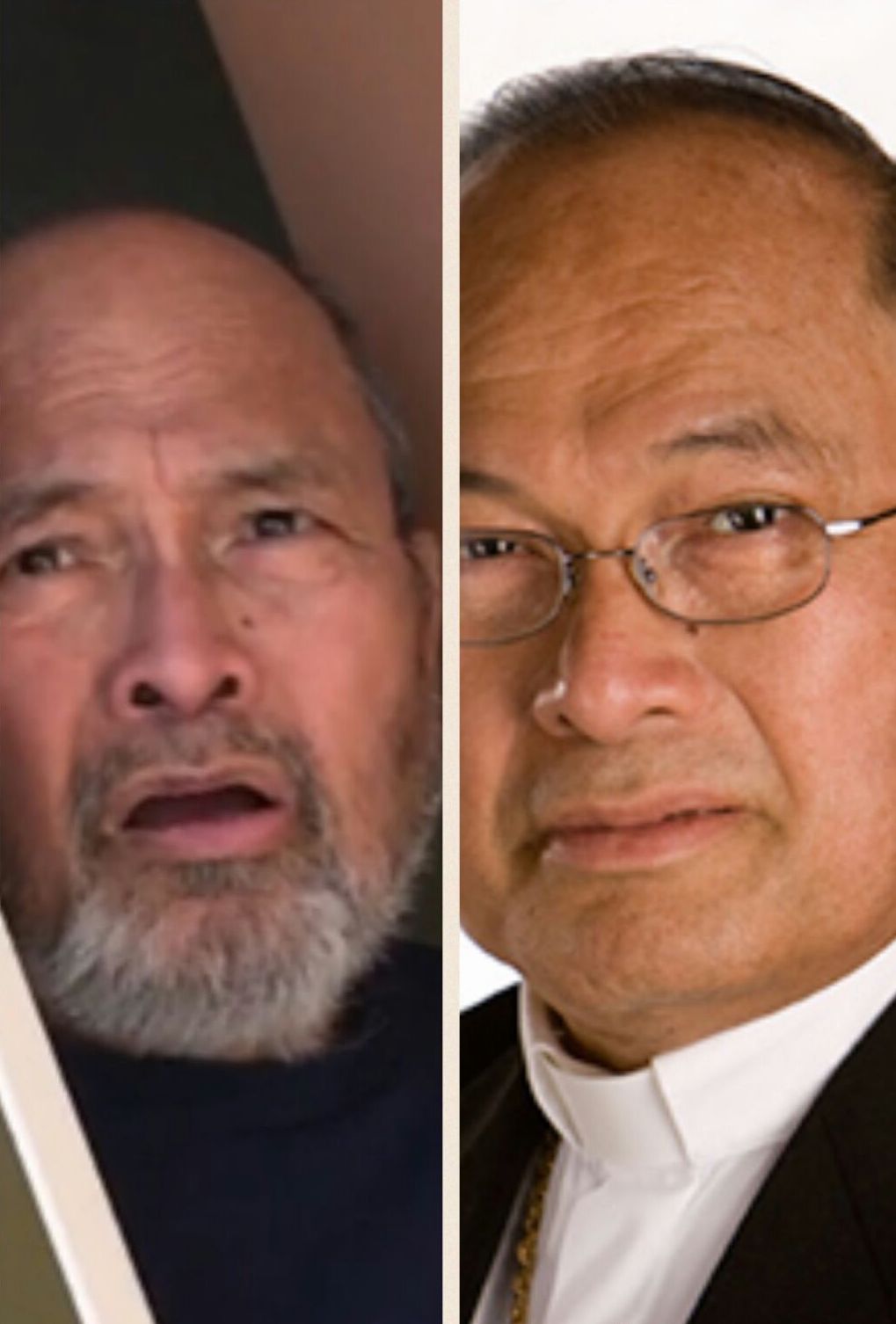Sex Abuse Law ‘unconstitutional’
By Neil Pang
Archbishop Anthony Apuron, whose administrative authority has been removed in light of decades-old sex-abuse allegations, filed court papers yesterday asking for the dismissal of cases filed against him. Apuron was accused of child sexual abuse which allegedly took place in the 1970s when he was the parish priest for Our Lady of Mount Carmel Catholic Church in Agat. His accusers are four former altar boys from the Agat parish, including Walter Denton, Roland Sonia and Roy Quintanilla. Mary Jane Quinata Cruz also sued Apuron in her capacity as the administrator of alleged abuse victim Joseph Quinata's estate. Apuron's motions to dismiss states, in part, that the allegations of sex abuse filed by former altar boys against him are past the legal time limit to file cases, and further states that the law which granted the filing of the cases in the first place is "inorganic," or unlawful under the Organic Act of Guam. The motions in the four cases were filed on behalf of Apuron in his personal capacity. Attorney Jacqueline Terlaje filed the motions for Apuron. The four cases were filed after the 33rd Guam Legislature and Gov. Eddie Calvo passed and signed Bill 326-33 into Public Law 33-187 last September. According to court documents, Apuron's attorney is arguing that the passage of the law does not actually permit any of Apuron's current accusers to file suit against the archbishop. Inorganic, unconstitutional Apuron is asking the court to dismiss the complaint on the basis that the plaintiff's claims are time-barred, and were not revived by the passage of Public Law 33-187. And even if revived, his motion states, "any such retrospective application is inorganic." In the motion, Terlaje argues that while "sexual abuse against children is heinous and intolerable" and should be pursued through both criminal prosecution and civil claims, statutes of limitations are critical to the civil justice system. Time limits "strike an important balance between an individual's right to pursue a claim against a defendant's ability to present a meaningful defense," according to Terlaje. "By retroactively changing the statute of limitations involving sexual abuse in Guam, the Guam Legislature unconstitutionally impaired vested rights, opened the door to unverifiable and potentially undefendable claims and creates a prejudicial environment for Defendant Apuron's defense," Apuron's motion to dismiss states. Apuron's motion argues that language in Public Law 33-187 only lifts the statute of limitations for a very specific group of potential claimants and does not actually lift the statute of limitations to "all previous statutes of limitations" because it does not contain "express statutory language," which retroactively applies to all expired statutes of limitations. Under their interpretation of the law, the effect of Public Law 33-187 can only be applied to those causes of action which accrued and expired between the years 2011 and 2013. "(Public Law 33-187) does not protect children against sexual abuse, nor does it permissibly grant a justiciable cause of action which fails to overcome its unconstitutional and inorganic shortfalls," according to court documents. Blas takes offense Former Sen. Frank Blas Jr., who introduced Bill 326-33 which became Public Law 33-187, told The Guam Daily Post he "really takes offense" to the claim made on behalf of Apuron that his measure "does not protect children against sexual abuse." He explained the intent of the law was not only to provide legal recourse to victims of child sexual abuse who were unable to file claims against their abusers within the established statute of limitations, but also to protect children from potential abusers going into the future. "It sends a warning to those who might think about sexually abusing a child," Blas said. "When an abuser threatens or tells a child that he's going to kill him or his family if the child were to tell anyone about the abuse, that child might be scared of that abuser now, but I want those abusers to think how, 10 to 20 years from now when that child gets the courage and strength to come forward, that child will be able to seek justice from his abuser." 32 other cases in federal court While the four cases naming Apuron remain unresolved, motions to dismiss 32 other cases currently pending in the District Court of Guam may soon be filed by Archdiocese of Agana legal counsel John Terlaje. Those 32 cases represent plaintiffs who have accused several former Guam clergy of child sexual abuse reaching as far back as the 1950s. According to Post files, John Terlaje intends to argue for the dismissal of the child sex abuse cases currently sitting in the U.S. District Court of Guam by challenging the legality of Public Law 33-187. John Terlaje is the brother of current Vice Speaker Therese Terlaje, who served as legislative legal counsel for the 33rd Guam Legislature in 2016 when lawmakers debated and passed Bill 326. Blas yesterday confirmed with the Post that, while amendments were introduced and made, at no stage of the legislative vetting process did anyone suggest adding expressly retroactive statutory language, and that he believes the law, as it stands, offers the protections to child sexual abuse victims he intended for it to have.
|
.
Any original material on these pages is copyright © BishopAccountability.org 2004. Reproduce freely with attribution.
